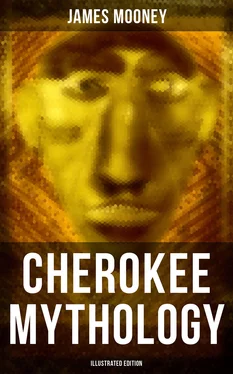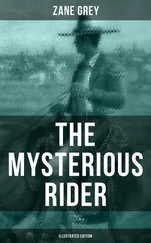Article 7. The Cherokee nation having already made great progress in civilization, and deeming it important that every proper and laudable inducement should be offered to their people to improve their condition, as well as to guard and secure in the most effectual manner the rights guaranteed to them in this treaty, and with a view to illustrate the liberal and enlarged policy of the government of the United States toward the Indians in their removal beyond the territorial limits of the states, it is stipulated that they shall be entitled to a Delegate in the House of Representatives of the United States whenever Congress shall make provision for the same.
The instrument was signed by (Governor) William Carroll of Tennessee and (Reverend) J. F. Schermerhorn as commissioners—the former, however, having been unable to attend by reason of illness—and by twenty Cherokee, among whom the most prominent were Major Ridge and Elias Boudinot, former editor of the Phœnix . Neither John Ross nor any one of the officers of the Cherokee Nation was present or represented. After some changes by the Senate, it was ratified May 23, 1836.315
Upon the treaty of New Echota and the treaty previously made with the western Cherokee at Fort Gibson in 1833, the united Cherokee Nation based its claim to the present territory held by the tribe in Indian Territory and to the Cherokee outlet, and to national self-government, with protection from outside intrusion.
An official census taken in 1835 showed the whole number of Cherokee in Georgia, North Carolina, Alabama, and Tennessee to be 16,542, exclusive of 1,592 negro slaves and 201 whites intermarried with Cherokee. The Cherokee were distributed as follows: Georgia, 8,946; North Carolina, 3,644; Tennessee, 2,528; Alabama, 1,424.316
Despite the efforts of Ross and the national delegates, who presented protests with signatures representing nearly 16,000 Cherokee, the treaty had been ratified by a majority of one vote over the necessary number, and preliminary steps were at once taken to carry it into execution. Councils were held in opposition all over the Cherokee Nation, and resolutions denouncing the methods used and declaring the treaty absolutely null and void were drawn up and submitted to General Wool, in command of the troops in the Cherokee country, by whom they were forwarded to Washington. The President in reply expressed his surprise that an officer of the army should have received or transmitted a paper so disrespectful to the Executive, the Senate, and the American people; declared his settled determination that the treaty should be carried out without modification and with all consistent dispatch, and directed that after a copy of the letter had been delivered to Ross, no further communication, by mouth or writing, should be held with him concerning the treaty. It was further directed that no council should be permitted to assemble to discuss the treaty. Ross had already been informed that the President had ceased to recognize any existing government among the eastern Cherokee, and that any further effort by him to prevent the consummation of the treaty would be suppressed.317
Notwithstanding this suppression of opinion, the feeling of the Nation was soon made plain through other sources. Before the ratification of the treaty Major W. M. Davis had been appointed to enroll the Cherokee for removal and to appraise the value of their improvements. He soon learned the true condition of affairs, and, although holding his office by the good will of President Jackson, he addressed to the Secretary of War a strong letter upon the subject, from which the following extract is made:
I conceive that my duty to the President, to yourself, and to my country reluctantly compels me to make a statement of facts in relation to a meeting of a small number of Cherokees at New Echota last December, who were met by Mr. Schermerhorn and articles of a general treaty entered into between them for the whole Cherokee nation.... Sir, that paper, ... called a treaty, is no treaty at all, because not sanctioned by the great body of the Cherokee and made without their participation or assent. I solemnly declare to you that upon its reference to the Cherokee people it would be instantly rejected by nine-tenths of them, and I believe by nineteen-twentieths of them. There were not present at the conclusion of the treaty more than one hundred Cherokee voters, and not more than three hundred, including women and children, although the weather was everything that could be desired. The Indians had long been notified of the meeting, and blankets were promised to all who would come and vote for the treaty. The most cunning and artful means were resorted to to conceal the paucity of numbers present at the treaty. No enumeration of them was made by Schermerhorn. The business of making the treaty was transacted with a committee appointed by the Indians present, so as not to expose their numbers. The power of attorney under which the committee acted was signed only by the president and secretary of the meeting, so as not to disclose their weakness.... Mr. Schermerhorn’s apparent design was to conceal the real number present and to impose on the public and the government upon this point. The delegation taken to Washington by Mr. Schermerhorn had no more authority to make a treaty than any other dozen Cherokee accidentally picked up for the purpose. I now warn you and the President that if this paper of Schermerhorn’s called a treaty is sent to the Senate and ratified you will bring trouble upon the government and eventually destroy this [the Cherokee] Nation. The Cherokee are a peaceable, harmless people, but you may drive them to desperation, and this treaty can not be carried into effect except by the strong arm of force.318
General Wool, who had been placed in command of the troops concentrated in the Cherokee country to prevent opposition to the enforcement of the treaty, reported on February 18, 1837, that he had called them together and made them an address, but “it is, however, vain to talk to a people almost universally opposed to the treaty and who maintain that they never made such a treaty. So determined are they in their opposition that not one of all those who were present and voted at the council held but a day or two since, however poor or destitute, would receive either rations or clothing from the United States lest they might compromise themselves in regard to the treaty. These same people, as well as those in the mountains of North Carolina, during the summer past, preferred living upon the roots and sap of trees rather than receive provisions from the United States, and thousands, as I have been informed, had no other food for weeks. Many have said they will die before they will leave the country.”319
Other letters from General Wool while engaged in the work of disarming and overawing the Cherokee show how very disagreeable that duty was to him and how strongly his sympathies were with the Indians, who were practically unanimous in repudiating the treaty. In one letter he says:
The whole scene since I have been in this country has been nothing but a heart-rending one, and such a one as I would be glad to get rid of as soon as circumstances will permit. Because I am firm and decided, do not believe I would be unjust. If I could, and I could not do them a greater kindness, I would remove every Indian to-morrow beyond the reach of the white men, who, like vultures, are watching, ready to pounce upon their prey and strip them of everything they have or expect from the government of the United States. Yes, sir, nineteen-twentieths, if not ninety-nine out of every hundred, will go penniless to the West.320
How it was to be brought about is explained in part by a letter addressed to the President by Major Ridge himself, the principal signer of the treaty:
We now come to address you on the subject of our griefs and afflictions from the acts of the white people. They have got our lands and now they are preparing to fleece us of the money accruing from the treaty. We found our plantations taken either in whole or in part by the Georgians—suits instituted against us for back rents for our own farms. These suits are commenced in the inferior courts, with the evident design that, when we are ready to remove, to arrest our people, and on these vile claims to induce us to compromise for our own release, to travel with our families. Thus our funds will be filched from our people, and we shall be compelled to leave our country as beggars and in want.
Читать дальше












